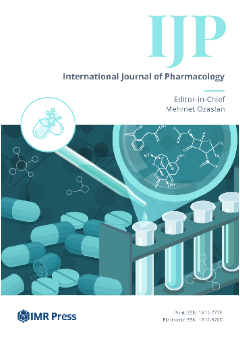International Journal of Pharmacology (IJP) is published by IMR Press from Volume 21 Issue 4 (2025). Previous articles were published by another publisher under the CC-BY licence, and they are hosted by IMR Press on imrpress.com as a courtesy and upon agreement.
How Allergic Rhinitis Affects Thyroid Autoimmunity: A Systematic Evaluation and Meta-Analysis
Allergic rhinitis (AR), one of the most prevalent chronic conditions worldwide, results from immune system reactions to inhaled allergens mediated by the Immunoglobulin E (IgE) molecule. While individual symptoms may appear harmless, their collective impact can significantly diminish an individual’s overall quality of life. Moreover, AR’s repercussions extend beyond the observable symptoms, as it frequently coexists with various health disorders, including asthma. Allergic rhinitis is classified into two distinct categories: Local allergic rhinitis and occupational rhinitis, both characterized by typical allergic responses. Thyroid autoimmunity encompasses a range the thyroid issues triggered when the immune system, the body’s primary defense mechanism, is activated. Conditions such as Hashimoto’s thyroiditis and Graves’ disease exemplify thyroid autoimmune diseases. Studies indicate a less common mechanism differentiating thyroid autoimmunity from allergic rhinitis. Specifically, thyroid autoimmunity is associated with a Th1-dominated immune response, while allergic rhinitis is linked to a Th2-dominated immunological response. Nevertheless, they share some distinct traits, including a shared genetic predisposition, immune system dysregulation and exposure to environmental triggers. Chronic inflammation induced by allergic rhinitis may regulate exacerbated autoimmune responses, but further investigation is needed to substantiate these findings.

